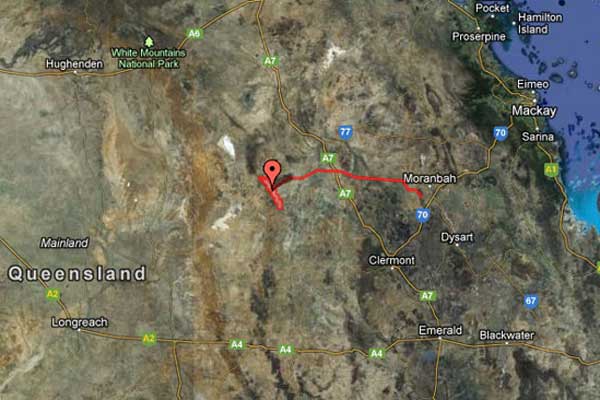The Australian Greens will move a motion in the Senate today calling on the federal government to urgently investigate the ownership of the Abbot Point coal terminal and Carmichael mine projects in Queensland.
The Carmichael mine in Queensland’s Galilee Basin, and the associated port expansion at Abbot Point near Mackay, are the largest coal venture Australia has seen.
But questions are emerging around the corporate dealings of Adani, the company developing the projects, and the overall bankability of those projects.
“Recent revelations in media have exposed Adani’s lack of transparency surrounding the ownership of the Abbot Point coal terminal and Carmichael mine projects, as well as alleged tax avoidance,” the Greens’ environment spokesperson Senator Larissa Waters said.
In an article published earlier this week, Fairfax probed the “complex web of companies tied to Adani’s Australian coal developments”.
Adani had already been accused of plans to dodge tax through inter-company loans, and now Fairfax has suggested “uncertainty about the ultimate ownership of the Abbot Point development”.
Guatam Adani – the Indian billionaire who ostensibly owns the company – has been its public face in Australia, Fairfax reports, however “it appears that Guatam Adani does not ultimately control many of the companies associated with his company’s Australian coal developments”.
Instead, his brother Vinod – who has been named in an ongoing criminal investigation into the alleged siphoning of $1 billion from Indian shareholders in three Adani companies – holds a series of pivotal positions associated with the company’s Australian activities.
“It’s reckless for the government to allow these enormous projects to proceed without even knowing who controls them,” Senator Waters said.
The projects are not only enormous, but have the potential to do vast environmental damage, with hundreds of millions of tonnes of coal set to be shipped through the Great Barrier Reef.
During the life of the mine, Carmichael will produce four times the greenhouse gas emissions of New Zealand, and will cover an area seven times the size of Sydney Harbour.
An opposition party in India has also attacked the project, but for economic reasons, with Derek O’Brien MP characterising the projects as “the latest example of crony capitalism” in November last year.
O’Brien has questioned whether President Modi’s close relationship with Adani was a factor that “prompted the State Bank of India” to sign a memorandum of understanding worth $1 billion with the company.
He drew attention to the apparently contradictory position of a government which has said it wants to cease thermal coal imports within three years, and the fact that “Adani group is expected to import two thirds of coal output from Carmichael into India”.

O’Brien also repeated comments from major banks that “coal mining in Australia is in structural decline”.
“They said coal prices have fallen by 50 per cent in the last three years, and will continue to fall,” he said.
“Five leading banks of the world; City Bank, Deutsche Bank, Royal Bank of Scotland, HSBC and Barclays denied giving funds for this project in Australia,” O’Brien said.
Adani is aiming for financial close by the end of 2015, but analysts are increasingly questioning the overall bankability of the $16.5 billion Carmichael mine.
The potential loss of an undisclosed quantity of subsidies promised by the Newman Queensland Government – known to have been in the hundreds of millions – won’t help.
Labor – which may form government in the coming weeks – has promised not to subsidise the project with taxpayer funds, but analyst Tim Buckley said those handouts were “pivotal” to the mine’s success.
Buckley, a former head of Equity Research at Citigroup who now directs the Institute of Energy Economics and Financial Analysis, says that for this and other reasons, private global financial institutions are unlikely to provide the $10 billion still required for the project to reach financial close.
The sixty per cent decline in coal prices over the last five years, sustained oversupply in the market, and international moves to limit carbon emissions, will also take their toll.
“There’s a pretty limited appetite for these projects for the good reason that coal prices are pretty low and these are very long term projects [Carmichael is approved for 60 years] with uncertain long term returns,” The Australia Institute’s Rod Campbell told New Matilda.
Whether or not the Senate carries The Greens’ motion for an investigation into Adani’s ownership and tax dealings, the bankability of the project may turn out to be Adani’s major problem.
Donate To New Matilda
New Matilda is a small, independent media outlet. We survive through reader contributions, and never losing a lawsuit. If you got something from this article, giving something back helps us to continue speaking truth to power. Every little bit counts.



